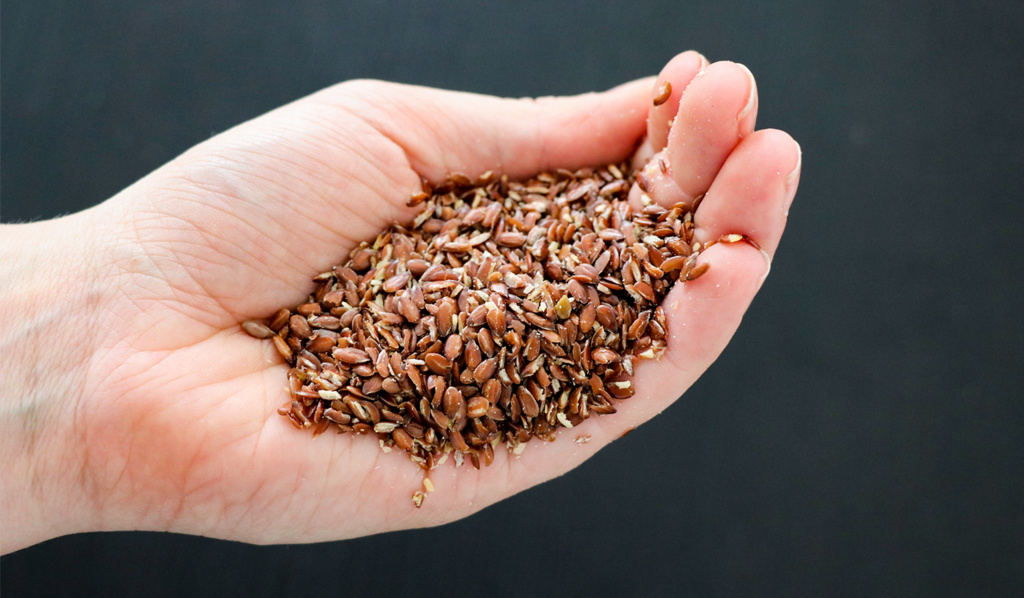“Whatsoever a man soweth,” says Paul, “that shall he also reap” (Gal. 6:7). Nearly everyone acknowledges the general truth of the apostle’s declaration about spiritual seeds. Who would deny that actions have consequences?
A Warning
Yet Paul senses a need for a solemn warning: “Be not deceived; God is not mocked.” The truth is, we may mouth our assent to the rule of sowing and reaping, but we are forever excusing ourselves from its ramifications. We ourselves, no less than the Galatians, need to hear this message.
In Paul’s metaphor, we are all, every one of us, farmers. We scatter spiritual seeds across the field of life, seeds of grace, joy, love, anger, hatred, self. And, as sure as the sun rises, these seeds will bear fruit at harvest time.
What fruit they produce is determined by what kind of seeds they are. There are two—and only two—possibilities. Paul lays it down as a law of nature, not admitting of any exception: “He that soweth to his flesh shall of the flesh reap corruption; but he that soweth to the Spirit shall of the Spirit reap life everlasting” (Gal. 6:8).
The Field and the Harvest
The sowers of spiritual seeds are susceptible to going wrong in two ways. They may either miss the field or mistake the harvest.
The harvest is hereafter. We must not look for everlasting life today. To what purpose is our work if we reap the benefits immediately? What then have we accomplished? No, this fruit is long in ripening. We may have a taste of it now, but a crop that will last for eternity does not grow up overnight. It may not be ready even in our lifetime. No matter: the harvest is sure, though it be long. “Let us not be weary in well doing: for in due season we shall reap, if we faint not” (Gal. 6:9).
If the harvest is long, the field is broad. It encompasses all the world. Paul has been exhorting the Galatians about their responsibilities toward one another, and he leaves his readers in no doubt about who should be given priority: “Bear ye one another’s burdens” (Gal. 6:2); “by love serve one another” (Gal. 5:13). That is the Spirit’s way. It is not one’s own self that matters: it is always the other. The field of our labors is bigger than our own gardens. It is in the church, whenever a brother has need. It is in the world, wherever we find a man made in God’s image.
If we sow to ourselves, we may as well give up on life everlasting. God has appointed us to carry our sowing into His field. Our work is to serve mankind. Paul says again: “As we have therefore opportunity, let us do good unto all men, especially unto them who are of the household of faith” (Gal. 6:10).
Our Task
So the laborers must sow indiscriminately, freehandedly, abundantly, always and only those seeds that flourish in God’s field and ripen in His harvest. The seeds of the flesh against which Paul warns will not bear good fruit in the soil of human hearts. Those seeds tend to corruption, not life. But when we turn away from ourselves to do service for eternity, we find success. The spiritual seeds of love and goodness—a touch of comfort here, a word of counsel there, a gift to meet a need—will give us a lasting harvest. Their fruit shall fill our granaries forever.
Of course, the harvest itself is not our responsibility—only the sowing. Our task is to sow the Spirit’s seed. “In the morning sow thy seed, and in the evening withhold not thine hand” (Eccles. 11:6).
Every action, big or small, good or evil, is a seed. All spiritual seeds will bear fruit whether the sower anticipates it or not. Consider a few examples:
- Did the Irish postman think, when he read his Bible to his daughter in the 1890s, that in the 2010s the fourth generation of his children would be passing on the same teaching to their families?
- Could the young teacher, as she opened her prairie school in 1912, dream that her decision to immigrate to North America would allow her to exercise a spiritual influence on people not yet born?
- Did the Canadian missionary, sailing to India in 1956, have any idea of the hundreds of churches that would grow out of his ministry?
Sowing for Eternity
We cannot tell. But that missionary—son of the immigrant teacher, grandson of the Ulster postman and my great-uncle J. A. Johnson—later wrote:
The Bible says, “Whatsoever a man sows, that shall he also reap” (Gal. 6:7). These words . . . are true in the natural world, and they are true in the spiritual world. What you sow today will produce fruit tomorrow. You may sow certain types of seeds today that will never mature and produce fruit in your lifetime. But some day, in the natural course of events, they will produce fruit. The fruit which they produce will fall into the ground and produce further fruit. The fruit which those first seeds bore will go on being reproduced throughout the years of history as long as the world shall last. The same is infinitely more true in the spiritual realm. The influence of what we do, what we say and what we are today will bear fruit in the lives of others. The influence which we have had on them will result in courses of action which will, in turn, influence many others. In the natural course of events this will go on repeating itself as long as the world shall last. Among the most solemn words of the Bible are the words of Jer. 17:10. “I the LORD give to every man according to the FRUIT of his doings”. When you and I stand before God Almighty for judgment, we shall give an account not only of our own acts, but also of the influence of our acts upon each successive generation of humanity.
What will your influence be? What, ages and ages hence, when the angels of God gather in the full corn, shall be your harvest?
That depends on the seeds you are sowing today.








